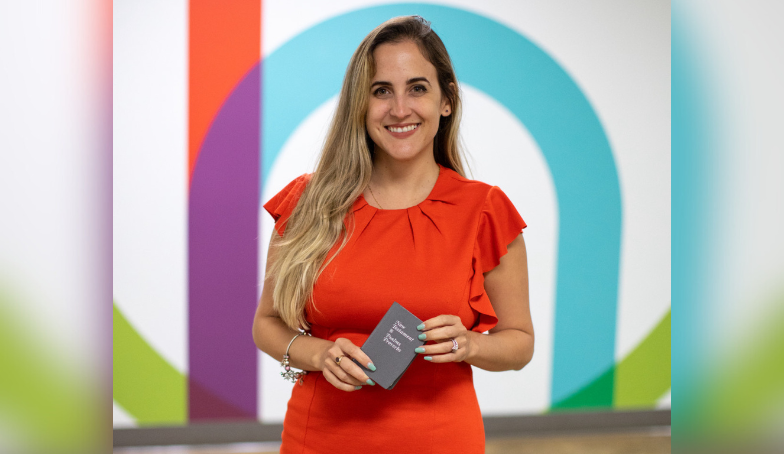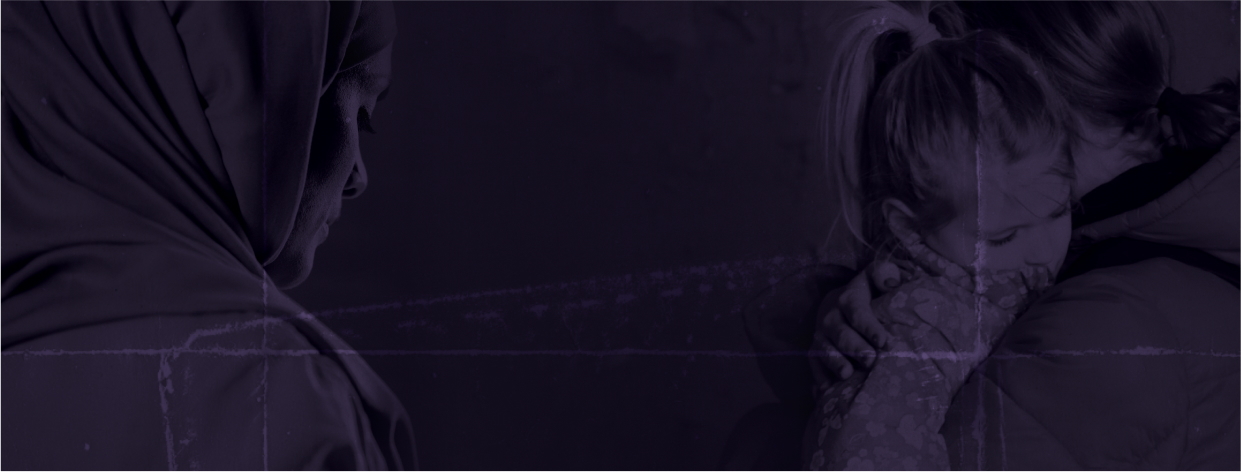When she shares her story with American high schoolers, Gabriela Blanco flashes a photo that shocks the conscience: hoards of Cuban children with confused and tear-stained faces, luggage in hand, arriving by plane in the United States.
Blanco turns to the audience. “What would you do for love?” she asks.
Blanco knows the answer to her question firsthand, having witnessed the corrosion of her home country and fracturing of her own family under dictator Fidel Castro’s “socialist utopia.”

Blanco was born in Havana, Cuba in 1990, the year after the collapse of the Soviet Union. Cuba, which had once been one of the most luxurious and successful countries in Latin America, had been corroded by four decades of failed ideological experiments.
Following the Soviet Union’s collapse, Cuba’s economy, which had been heavily reliant on Soviet imports, entered a severe depression known as the “Special Period,” characterized by extreme food shortages, an energy crisis, and a shortage of many goods that had been readily available since the beginning of the 20th century. Imports and exports fell more than 80%, and overall GDP fell 35%.
Blanco’s parents, who were engineers and the first in their families to graduate from college, did their best to shield Blanco from their circumstances. “We were a middle class family,” she said, “so we weren’t even the ones who were the worst off.”
Only in retrospect does she recognize the signs of financial hardship from her childhood. Her family used a neighbor’s fridge for years after theirs broke. There were rolling blackouts for days at a time. Their mode of transportation was a fleet of rusted bicycles.
“I loved my parents and grandparents. There was not much focus on the hardships we were facing,” Blanco said. “They were trying their best. That’s all I knew. I was happy. I loved my bicycle.”
The Cuban education system placed an undue emphasis on Marxist-Leninist, anti-capitalist, and anti-U.S. curricula. Law 43, drafted in 1990 and still in effect today, calls for expulsion of students and teachers who “defam(e) or publicly disparag(e) the institutions of the Republic and the political, social, and mass organizations of the country, as well as its heroes and martyrs.”
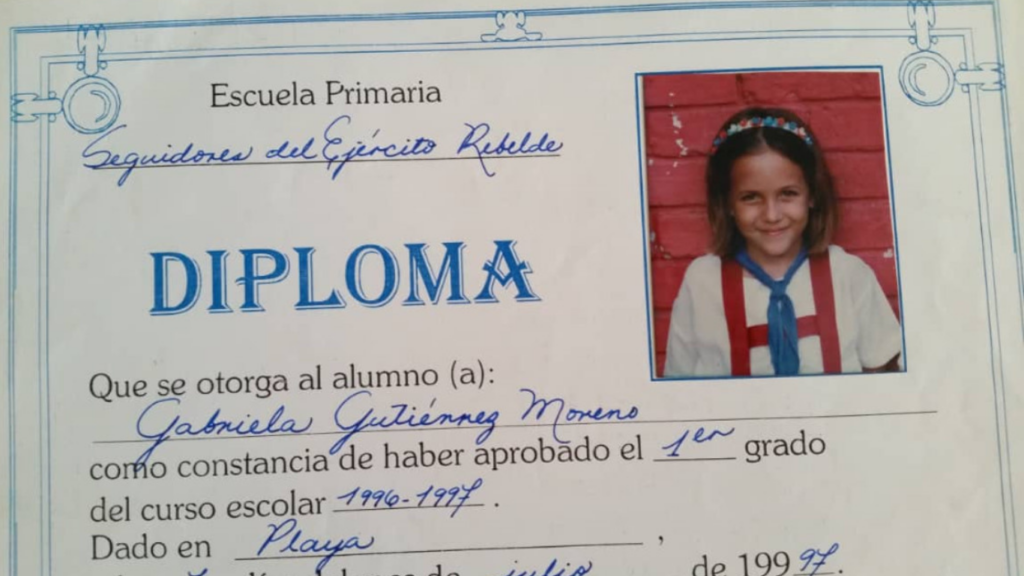
“It was all aimed at indoctrinating children into their cult of personality, with the love for country, for Che Guevara, for Fidel. My dad knew that that wasn’t what he wanted for his family,” Blanco said.
When Blanco was 12 years old, her father escaped to pave a way for a better life. He moved first to Mexico, and then to Bolivia, and Peru. “These countries were not his main goal, but he wanted to get us out in whatever way he could,” she said. “He was always looking towards the United States.”
Left behind in Cuba, Blanco began to study English using her father’s dictionary, not knowing that it would be more than a decade before she would see him again.
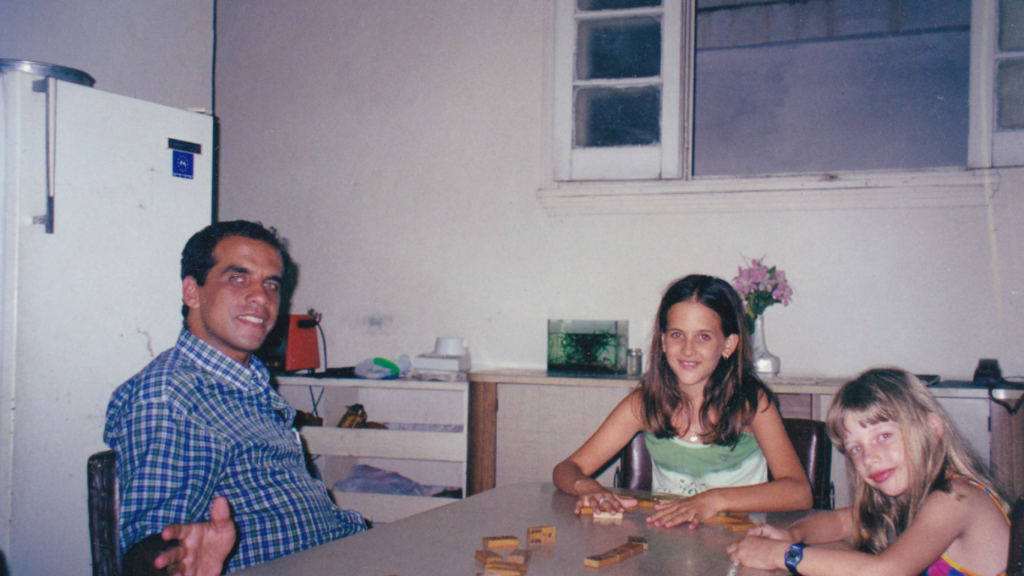
“Our family was broken,” Blanco recalls. “That’s the thing I noticed as a child. Our cousins and neighbors also had parents who were gone, so we got used to it. Marriages collapsed. We were used to families that were broken.”
When Blanco’s family finally arrived in the United States several years later, Blanco, 23 at the time, was not able to join them due to technicalities in the family reunification rules – a process exclusively for parents and underaged children.
Instead, she ventured out on her own, moving to the Cayman Islands on a work permit to take a waitressing job. It was her first time in a capitalist country.
For Blanco, life in the Cayman Islands was a breakthrough. “I realized that individual freedom is the start of absolutely everything,” she said. “No system has done more for women than capitalism.”
“In Cuba,” she recalled, “all of your accomplishments — whether you’re in sports, the arts, an engineer — are for the state. Sure, we barely have a salary, but it’s okay, because it’s all for the Revolution. It’s all for the ‘people,’ they said. It’s not until you see a different world that you realize you were living in extreme poverty, and the government officials at the top seemed to be doing pretty well.”
While completing her Masters in Event Management at Falmouth University in Cornwall, she became a senior events planner for a family-owned event production and rental company, Associated Industries. The company was well loved within the community, as it cleaned and maintained the beaches and gave generously from its earnings. This generosity, Blanco realized, was what Cuba had tried and failed to enforce in her home country. “If you’re struggling to feed your own children,” she said, “you’re not going to want to share what you have.”
Her involvement in the community led her to her first Christian church — the first tentative step in her faith journey. “I was no longer worshiping presidents or leaders or institutions. I was free,” she said.
After six years of waiting, Blanco was approved to move to the United States as a permanent resident, and was reunited with her family for the first time in a decade.
Soon after, Blanco met her husband Daniel, a Venezuelan immigrant. “He had to leave his family, too, to have any hope for a better life or better future,” she said. They settled in Austin, Texas, for work and found a welcoming church.
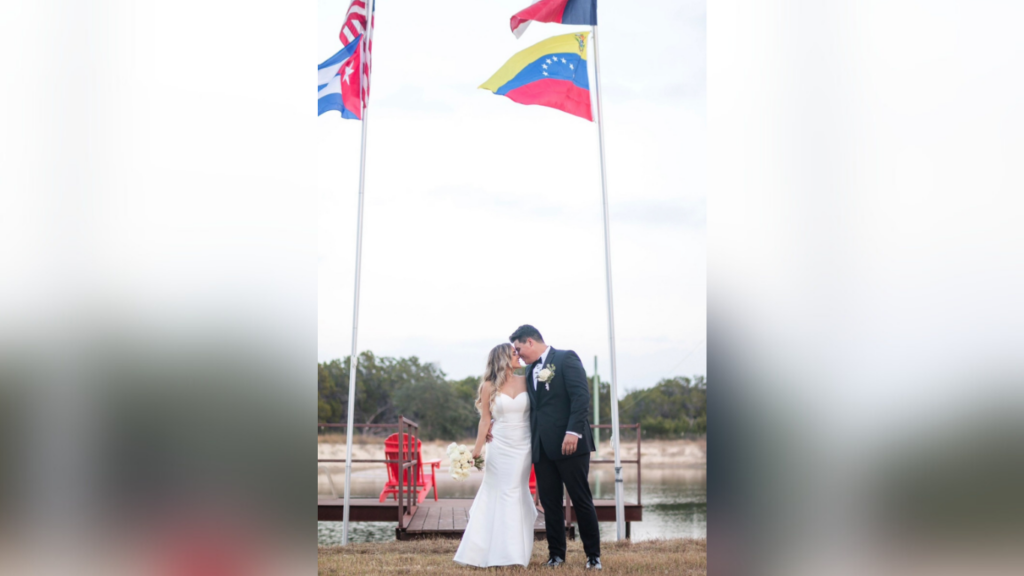
However, many people in their local community, they realized, had no idea what had happened in Cuba or Venezuela. To this day, students on college campuses in Texas and other parts of the country call for a socialist revolution with seemingly no regard for the damage similar revolutions have wrought in neighboring countries.
“In Austin, we found things we were not expecting to find,” Blanco said. “Many of these college students are angry. There is so much sadness — they want to change things.”
But those who experienced the consequences of socialism for themselves know better, Blanco added.
“Venezuelans were warned by Cubans, and Cuba borrowed heavily from the Soviets. Thirty years later, the same thing can happen here. You begin to identify the patterns, and it does get scary,” said Blanco.
Blanco and her husband realized how important it was to share their stories. Daniel began to share his faith and life testimony through Gideons International, a Christian association for men. And Blanco found the Dissident Project, where she shares her story with American high schoolers across the country.
As part of her story, Blanco emphasizes how important the family unit is to countering the influence of tyrannical regimes such as Cuba’s.
“Castro knew the power of the family unit. He knew the power of children. He knew the power of God,” she said.
Under Castro, religion was restricted. Divorce rates soared. Castro’s government incentivized abortion by decriminalizing it in 1965 and making it free in 1979. Abortion rates remain shockingly high in Cuba today, with some statistics claiming there are 72.8 abortions per 100 live births, or 41.9% of pregnancies terminated each year.
“I’m seeing so much rhetoric pitting men against women,” Blanco said of the United States. “It sounds like the same pitch I heard years ago.”
In the U.S., it seems “raising a family is no longer a priority” for many, she added. And that’s by design. “It works in the state’s favor that you’re a single mom,” she continued, “that you have to put your child up for daycare.”
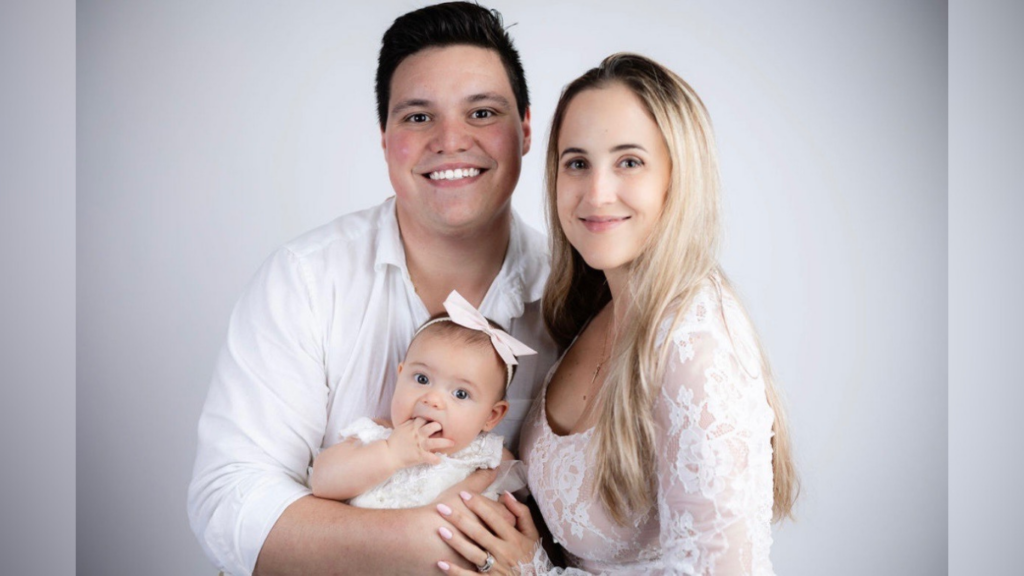
Vignettes float to mind: Blanco’s early educational experiences in Cuba; U.S. parents waking up to the leftist takeover of their children’s curriculum during the pandemic. “We have to do everything to counter this,” she says.
Blanco may have been born into a repressive regime, but she intends to make sure her daughter can’t say the same.
“It’s my higher purpose: to make sure the community our daughter is raised in upholds our values, for men, women, and girls,” she said.

